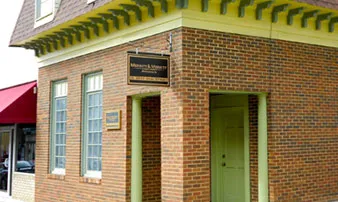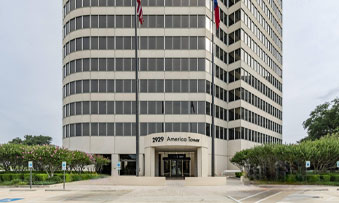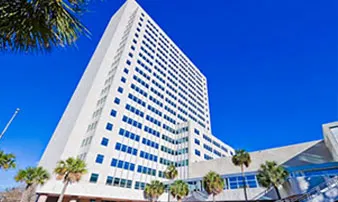Statesboro Nursing Home Abuse Lawyer
Statesboro, Georgia, like communities across the nation, faces the challenge of ensuring the safety and well-being of its elderly and disabled residents, particularly those residing in long-term health care facilities. For families who entrust the care of their loved ones to these facilities, any instance of neglect or abuse can be devastating. When such incidents occur, understanding your rights and legal options is crucial to seeking justice and accountability.
At Merritt & Merritt Law Firm, we are dedicated to advocating for those who have been injured due to the negligence or wrongful actions of others, including representing victims of nursing home abuse and neglect in Statesboro and throughout Georgia. We understand the complexities of these cases and are here to help you navigate the legal process to protect your loved one’s rights and seek the compensation they deserve. Call us today at 912-764-3434 for a free consultation and see how we can help you.
Understanding Nursing Home Abuse and Neglect in Georgia
Nursing homes and other long-term care facilities are entrusted with the vital responsibility of providing a safe and caring environment for elderly residents who require assistance with daily living or medical care. Residents of these facilities have specific rights under Georgia law, including the Bill of Rights for Residents of Long-Term Care Facilities. These rights cover various aspects of care, treatment, services, privacy, and freedom from abuse or mistreatment.
Despite these legal protections, instances of abuse and neglect can unfortunately still occur.. The National Council on Aging reports that one in 10 Americans aged 60 and over have experienced some form of elder abuse, and as many as five million seniors are abused each year. Studies indicate that only about one in 14 of these incidents are reported to authorities. Unfortunately, as the elderly population increases, the occurrence of elder mistreatment is also expected to rise.
Abuse, neglect, and exploitation are serious issues. According to the National Institute on Aging, signs that an older adult may be experiencing abuse include:
- Physical: Unexplained injuries or physical signs of punishment or restraint, such as bruises, scars, or burns.
- Emotional: Depression, anxiety, or changes in behavior.
- Neglect: Preventable health problems such as bedsores or unclean living conditions.
- Abandonment: Leaving an older adult who needs help alone without planning for their care.
- Sexual: Changes in mood, becoming withdrawn, or other physical signs.
- Financial: Changes in banking or spending patterns.
Legal Framework and Reporting in Georgia
Georgia has taken many legislative steps to combat elder abuse in the state, showing that it is not only an issue, but a priority for legislatures to ensure the safety of all Georgians, no matter their age. In 2013, House Bill 78 updated elder abuse laws by expanding the scope of protected persons and enhancing mandatory reporting. House Bill 72 in 2015 further strengthened the laws, allowing cases to be tried where a violation occurred or where the victim resides and requiring adult protection agencies to determine if a reported incident constitutes a crime. This bill also allows prosecutors to hold groups accountable for defrauding or abusing vulnerable adults as RICO crimes. Senate Bill 406 in 2018 required FBI fingerprinting for background checks of employees with direct access to patients in long-term care settings and created the Central Caregiver Registry. House Bill 803 created the crime of trafficking an at-risk adult to steal benefits, and House Bill 635 helps communities create task forces to investigate such issues.
In Georgia, there are several state agencies and programs that are involved in protecting older adults and addressing elder abuse. These programs include:
- Adult Protective Services (APS): This state entity investigates reports of abuse, neglect, and exploitation of older persons (65+) or adults with disabilities (18+) who do not live in long-term care facilities. If you suspect abuse of an older adult or adult with a disability, you can file a report online 24/7 or by phone Monday through Friday, 8 a.m. to 7 p.m. at 1-866-55AGING (1-866-552-4464), pressing “3”. APS is not a first responder; call 911 if someone is in immediate danger.
- Healthcare Facility Regulation Division (HFRD): This division, part of the Georgia Department of Community Health, licenses and oversees healthcare facilities, including long-term care facilities. You can file a complaint online against a licensed facility for poor quality care. Reports of abuse, neglect, or exploitation of an older adult or adult with a disability residing in a long-term care facility (such as community living arrangements, personal care homes, intermediate care, or skilled nursing homes) should be directed to HFRD at 1-800-878-6442 or through their website.
- Long-Term Care Ombudsman Program: An Ombudsman works to improve the quality of life for residents of long-term care facilities, including nursing homes and personal care homes. They investigate and work to resolve problems or complaints affecting residents, identify problem areas, advocate for change, and educate facility staff about resident rights. The Office of the State Long-Term Care Ombudsman seeks resolution of problems and advocates for residents’ rights to enhance their quality of life and care. You can learn more or get local help by calling 1-866-552-4464 and selecting option “5”.
Seeking Justice Through a Civil Lawsuit with an Statesboro Nursing Home Abuse Lawyer
Beyond reporting abuse to regulatory agencies and law enforcement, victims of nursing home abuse and neglect, or their families, may have the right to pursue a civil lawsuit against the responsible parties. A civil lawsuit aims to recover compensation for the harm suffered by the victim or victims.
In Georgia, personal injury cases, including those involving nursing home abuse and neglect, often rely on proving negligence. Negligence describes a situation where an individual fails to exercise the necessary duty of care, and that failure results in injury or damage to another. To prove negligence in Georgia, the injured party must demonstrate four elements:
- Duty of Care: The defendant owed a legal obligation or duty of care to the injured party (the resident).
- Breach of Duty: The defendant breached or violated this duty of care.
- Causation: There is a causal connection linking the defendant’s conduct (the breach of duty) and the harm that resulted. The defendant’s actions or inactions must be the direct cause of the resident’s injuries or damages.
- Damages: Actual harm or damages resulted from the defendant’s conduct. Damages in a nursing home abuse case can include medical expenses, pain and suffering, emotional distress, and other losses. If the abuse or neglect resulted in death, a wrongful death claim may be pursued to compensate the surviving family members.
Determining who is responsible is not always straightforward, and nursing homes or their representatives may try to minimize responsibility or blame others. This is where an experienced Statesboro nursing home abuse lawyer team becomes invaluable to getting the compensation that you deserve. The attorneys at Merritt & Merritt Law Firm are experienced in nursing home law, and can help you win your case and make sure you get the most out of your compensation.
It is important to note that on top of having to prove negligence, Georgia is an at-fault state, which means that the party determined to be at fault for an accident or injury is financially responsible for the damages caused. The fault may not be determined to be 100% on the guilty party, however, as Georgia also uses modified comparative negligence to determine fault in personal injury cases. This means that if you are the injured party, and it is discovered that your actions may have contributed, even slightly, to the accident, then you are considered partially at fault as well. In order to be able to file a personal injury lawsuit in Georgia, it must be determined that you are less than 50% at fault for the accident. If you are more than 50% at fault, you may not file for compensation. If you are determined to be partially at fault, but less than 50%, then any compensation you are awarded will be reduced by that percentage. For example, if you are awarded $100,000, but you are found to be 20% at fault, your award is not $80,000, as the $100,000 is reduced by 20%.
Bringing a lawsuit against a nursing home, especially if it is a larger corporation or part of a chain, can be challenging. These entities often have significant resources and experienced legal teams dedicated to defending against claims. The attorneys at Merritt & Merritt Law Firm know how to take on these experienced legal teams, and will fight for your rights to get you and your loved ones compensation for your injuries. Call us today at 912-764-3434 to discuss your case for free.
How Merritt & Merritt Law Firm Can Help: Speak with a Statesboro Nursing Home Abuse Lawyer Today
Navigating the legal process after discovering nursing home abuse or neglect can be overwhelming, especially while dealing with the emotional toll and focusing on your loved one’s well-being. This is where a compassionate and experienced legal team can make a significant difference. Taking prompt action is vital for your loved ones’ safety and for preserving your legal rights. The experienced Statesboro nursing home abuse lawyer team at Merritt & Merritt Law Firm is here for you 24/7 when you need to speak to an attorney about your nursing home abuse case. Early legal attention is crucial to investigate the incident thoroughly, collect vital evidence while it is still available, gather witness testimony, and ensure your claim is filed within the required legal deadlines.
We are ready to fight for you and your family. Let our experienced legal team help you seek the justice and compensation your loved one deserves.
Contact Merritt & Merritt Law Firm today for a free case evaluation. Call 912-764-3434 today.






